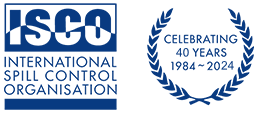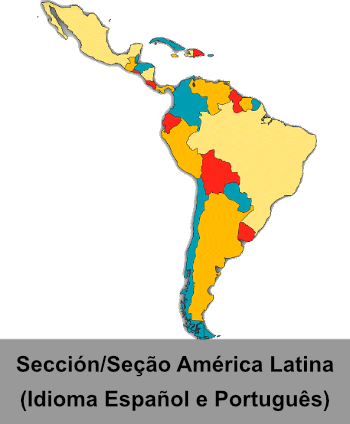Address given by ISCO Secretary John McMurtrie on 3rd September 2007 at the Conference at Port Said, Egypt, on the occasion of the Egyptian National Oil Spill Response Exercise “Ra Atum VI”.
The emphasis on regional and international participation in the programme is very positive. I hope that these events will herald further development of this co-operation. Please be assured that your efforts have the support of ISCO.
The theme of this event is “Co-operation in Practice” – a subject that is central to the aims of the International Spill Control Organization.
For those of you who are unfamiliar with ISCO, let me give you a very brief potted history. The International Spill Control Organisation was incorporated in London in 1984 as a non-profit-making organisation, dedicated to improving worldwide co-operation and preparedness for response to oil and chemical spills.
The founding members of ISCO were the Spill Control Association of America (SCAA), the British Oil Spill Control Association (BOSCA), the Spill Control Association of France (SYCOPOL) and the Swedish Spill Control Association (SWEMARPOL).
The International Maritime Organisation (IMO), United Nations Environment Programme (UNEP), European Community (EC) and other organisations involved with legislation and other measures to improve the world’s capability to respond to oil and chemical spills have the benefit of inputs from national governments, petroleum industry organisations and environmental groups.
But there is also a vast resource of knowledge and experience amongst oil spill professionals – dedicated men and women in spill control manufacturing, response companies, co-ops, consultancies, universities, research and training. Global implementation of counter pollution measures depend to a high degree on these professionals and their organisations but, without focus, they have no voice. IMO and other relevant world organisations cannot communicate directly with the spill control industry as a whole and cannot easily access the expertise therein. ISCO aims to correct this situation.
ISCO was re-launched at the International Oil Spill Conference at Miami in 2005 and at this time the constitution was changed to allow a broader membership. ISCO is now truly international with members in 24 countries.
The organization is run by a Secretariat that is responsible to an elected Executive Committee assisted by the ISCO Council. Members of ISCO Council are the National Representatives of ISCO in their own countries. The Council is a non-executive body that is consulted by, and gives advice to, the Executive Committee. Members of Council provide a focus for ISCO Members in their own countries and a point of contact with their national governments and other national organisations. Currently there are 19 Members of Council, representing 19 countries. I’m happy to say that Member of ISCO Council for Egypt is Engr. Ashraf Sabet.
Following on an extended consultation ISCO is currently pursuing several new initiatives.
A new upgraded ISCO website has just been launched. The existing public service of information on conferences, exhibitions, scheduled training courses, etc. is being retained and a new classified section gives members the opportunity to promote their equipment or services with free advertisements which would otherwise cost 500 pounds sterling or more. A whole range of new features is being developed, including a members’ area currently under construction. There will be a focus on promoting co-operation and in helping members to grow response capability.
ISCO is planning to organise training and workshops in different countries where there is interest in implementing OPRC and the OPRC-HNS Protocol. Final approval of new IMO Model HNS training courses is expected soon and ISCO is working with other parties to deliver these courses. The accompanying workshops will involve local organisations, both public and private, intended to help attendees to build capacity to meet the new challenges. ISCO Members of Council will soon receive detailed proposals and will be asked to assess national interest in advancing these plans.
Through its new web site ISCO will publish technical papers, news of new techniques, equipment and materials, other developments and progress reports, all designed to assist members to meet the challenges arising from OPRC and OPRC-HNS implementation.
ISCO will maintain databases and other information sourcing support facilities with links to other organisations for networking and information exchange.
ISCO will actively support, involve its members, and contribute to national consultative processes regarding OPRC/OPRC-HNS implementation.
ISCO will keep its members informed on progress being made in different countries and alert members to emerging opportunities to contribute to infrastructure development for OPRC/OPRC-HNS implementation.
It’s just over a year since the Lebanon oil spill. As an example of “Co-operation in Practice” you may be interested to know that ISCO made a rapid initial assessment and offered technical support to IMO and REMPEC. Within days of the spill a forecast of potential challenges that could arise was communicated. The need to recover negative buoyancy oil from the seabed was foreseen before the problem arose and ISCO members were ready to provide specialised knowledge and experience. One ISCO member, Marine Pollution Control, accelerated successful proving trials on a new system for recovering sub-sea oil deposits to a surface vessel.
Co-operation is all about helping each other and ISCO continues to assist its members in overcoming technical problems – a more recent problem involved the removal of weathered oil deposits from a rocky shoreline in a sensitive location in the Faroe Islands. The solution, which worked very well indeed, was based on another member’s experience in resolving similar problems in the UK and Saudi Arabia.
How can you successfully recover oil in currents of up to 3.5 – 4 knots? How can you quickly and easily deploy a diversion or recovery boom from one bank of a fast-flowing river without any need for boats or anchors? How can you guarantee continuous 100% containment of oil in a fast flowing watercourse without impeding the water flow? How can you automatically detect an oil spill using a fixed detector in a marine situation with a tidal range of up to 5m?
ISCO members will be able to find answers to these and many other problems in the technical pages of the new ISCO website. If up against a problem and no immediate solution is at hand, members will have rapid access to the knowledge and experience of the international community of spill control professionals.
Another recent ISCO development involves ongoing discussions with the International Spill Accreditation Association (ISAA), an associate member of ISCO. ISAA’s objective is to raise standards of performance within the spill response industry and thus to give customers confidence that they will receive a high standard of professional and cost-effective performance from those contractors who have gone to the trouble and expense of seeking and achieving accreditation.
This is not just another quality assurance body but is a scheme that sets capability standards and, through scheme administration and specialist knowledge, helps contractors to attain these standards.
ISAA wishes to develop a closer co-operative working relationship with ISCO and this is seen as a route for ISCO to realise its objective of raising industry standards.
ISCO strongly supports the formation of regional organisations like OSRAM. On a regional basis, OSRAM complements the other regional organizations – REMPEC and the Mediterranean Oil Industry Group (MOIG).
It’s absolutely right that the industry should have a voice and it’s only through a co-operative organisation like OSRAM that the professionals responsible for cleaning up spills can have a real dialogue with regional organisations representing governments and oil industry. In many ways OSRAM’s regional objectives mirror those that ISCO is pursuing on a worldwide basis.
OSRAM’s role in developing regional co-operation is important, especially in larger spill situations where the resources of individual companies may not be adequate. Through co-operation a much larger resource is created and, by working together, it’s possible to raise the profile of the industry and develop everyone’s role in regional counter-pollution provision. Those companies that have joined OSRAM are demonstrating a mature attitude, recognising that there are times to compete with one another and other times when it is better to work together for mutual benefit.
Finally, my sincere congratulations on a very successful exercise and thank you for the opportunity to speak. I hope very much that some of you who share our values will want to join ISCO and I will be happy to answer your questions.





